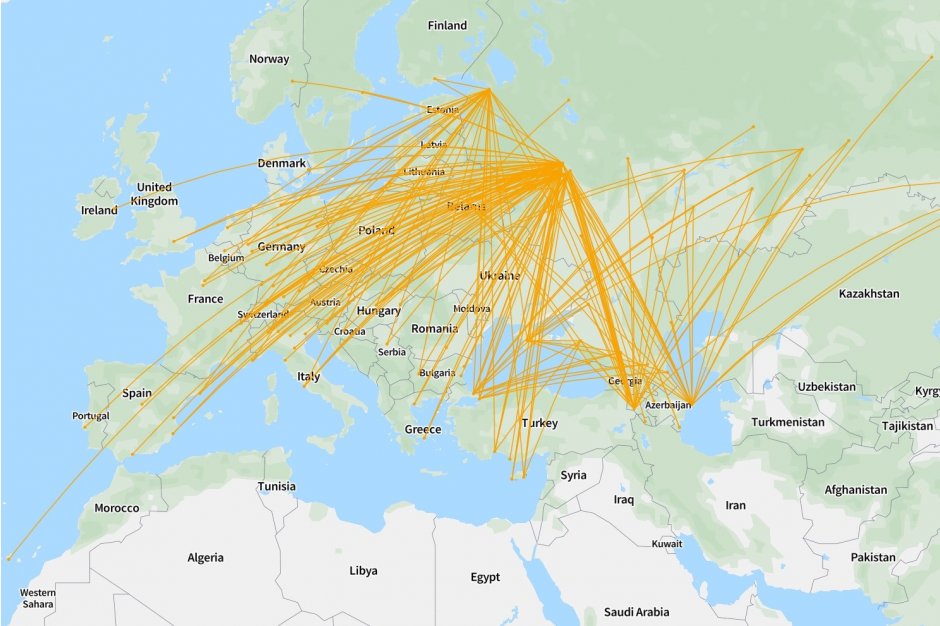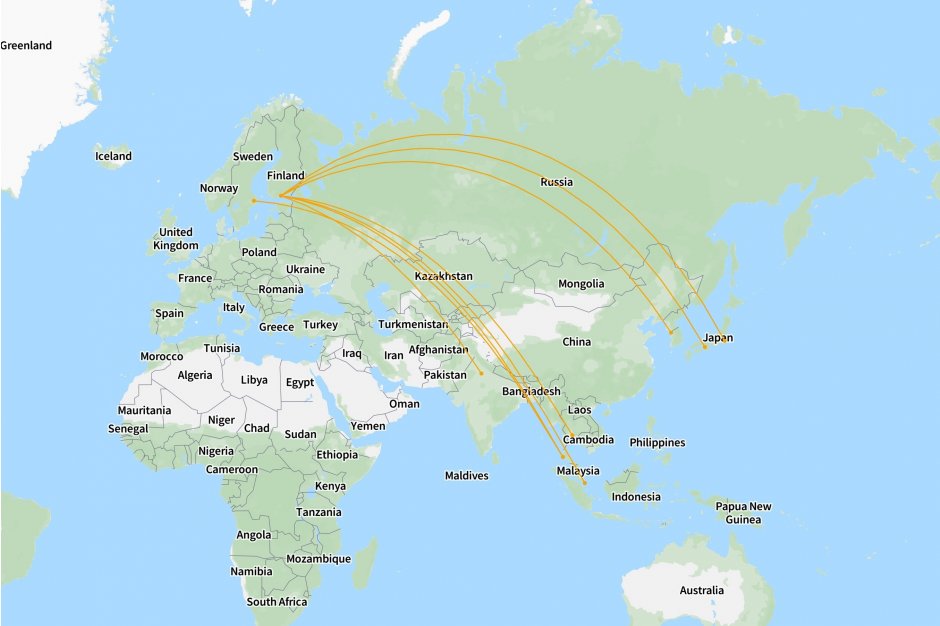
Russian carriers have been barred from almost all of Europe’s airspace as part of sanctions imposed by the European Union following Moscow’s invasion of Ukraine.
On Feb. 27, the head of the European Commission Ursula von der Leyen confirmed that the European Union is shutting its airspace to Russian aircraft. The decision means airlines will not be able to fly over the bloc or land at any airports within it.
“First, we are shutting down the EU airspace for Russian-owned, Russian-registered or Russian-controlled aircraft,” she said in a statement. “They won't be able to land in, take off or overfly the territory of the EU, including the private jets of oligarchs.”
The EU announcement came after countries including Germany, Italy, Finland and Spain imposed national bans, following the likes of the UK, Poland, Norway and Bulgaria. Canada has also said it has shut its airspace to Russian aircraft—and has since accused Aeroflot of violating the ban on a Moscow-bound flight from Miami (MIA).
Russia’s government is responding with bans for airlines from many countries, forcing European carriers to cancel flights and reroute their networks to parts of Asia. The country’s civil aviation authority Rosaviatsiya barred British airlines from its airspace last week following what it called “unfriendly decisions” taken by London.
How the sanctions affect Europe-Russia traffic
According to data provided by OAG Schedules Analyser, airlines had intended to operate 221 international routes between Russia and Europe this week (w/c Feb. 28, 2022), of which 114 were between airport pairs in Russia and Western Europe.
Total two-way capacity between Russia and Europe was scheduled to be in excess of 410,000 weekly seats, with Aeroflot commanding a 38% share. Turkish Airlines, Pegasus Airlines, Belavia, Lufthansa and Wizz Air were scheduled to be the five largest international carriers on international routes from Europe to Russia.
Although some sectors continue to operate—with the likes of Air Serbia maintaining its flights to Moscow—airlines including Lufthansa, Air France, KLM and British Airways (BA) have canceled planned operations to Russia. Aeroflot said it would suspend all flights to European destinations until further notice, while S7 Airlines has halted its European network until March 7.
The map below shows the international routes carriers had intended to operate between Europe and Russia prior to the invasion of Ukraine.

Overflight restrictions
While the sanctions on Russia will have a huge impact on the volume of passenger and cargo traffic in and out of the country, the closure of Russian airspace will also affect international airlines’ services between Europe and Asia.
Many routes between Europe and Asia overfly Russia and so airlines will now need to divert south while also avoiding areas of tension in the Middle East. This will result in longer journey times and increased costs, making some routes unsustainable.
Finnair, whose long-haul business model relies on the use of Russian airspace, said on Feb. 28 that the closure would “notably impact air traffic between Europe and Asia.” The airline has already canceled passenger and/or cargo flights to Seoul, Osaka, Tokyo, Shanghai and Guangzhou until March 6.
Service to Bangkok, Phuket, Singapore and Delhi will continue but will avoid Russian airspace. This will lengthen the flight times by about one hour.
“Bypassing the Russian airspace lengthens flight times to Asia considerably and, thus, the operation of most our passenger and cargo flights to Asia is not economically sustainable or competitive,” Finnair CEO Topi Manner said. The map below shows Finnair's previously planned Asia network.
Finnair’s previously planned Asia network:

Other European carriers are also re-evaluating their Asia networks, with Air France suspending flights to China, Japan and South Korea until it finds suitable route options. International Airlines Group, owner of BA and Iberia, confirmed it would reroute its Asia flights to avoid Russian airspace.





